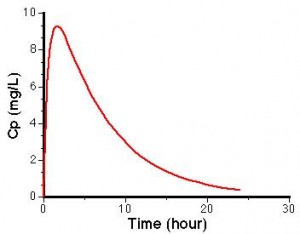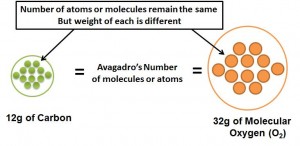In the presence of carbonyl functional group, the alpha-hydrogens of a molecule exhibit acidity i.e. in the presence of a base they can be abstracted very easily to yield a carbanion.

The acidity of the α-hydrogen of carbonyl compounds depends on the stability of the carbanion formed (which is the conjugate base in this case). If the carbanion is more stable, the alpha-hydrogen is more acidic. The carbanion can be stabilized either with resonance – i.e. the carbanion lone pair to the oxygen of the carbonyl to form the stabilized enolate, or by inductive effect – if electron withdrawing groups are directly attached to the alpha-carbon.


Note – Acidities of the alpha-hydrogen is measured in pKa. Lower pKa value of the hydrogen, more acidic it is.
Comparison of Acidities of Alpha – Hydrogens
Note – The pKa values are given assuming the R’ and R” groups are alkyl (mostly methyl group) and are an approximate value.
1] α-Hydrogens of Ketones vs Aldehydes
The alpha-hydrogens of ketones (pKa = 20) are less acidic as compared to aldehydes (pKa = 17). This is because the alkyl group R” of ketones pushes electrons via inductive effect on to the alpha-carbon. This would increase the electron density at the alpha-carbon to slightly destabilize the formation of the conjugate base – carbanion.

2] α-Hydrogens of Ketones vs Esters
The alpha-hydrogen of ketones (pKa = 20) is more acidic as compared to the alpha-hydrogens of esters (pKa = 25). The reason for this is that the ester functional group has free lone pairs on the oxygen which can participate in resonance with carbonyl group. This resonance competes with the resonance of the stabilization of the enolate resonance. Also the oxygen acts as an electron donating group via resonance and therefore makes the formation of carbanion more difficult.

3] α-Hydrogens of β-Diketones, β-Ketoesters and β-Diesters
Beta-diketones have extremely acidic alpha-hydrogens (pKa = 9), mainly because the formed negative charge on the conjugate base can be distributed on both the ketone groups on either side. For this reason abstraction of this proton can be achieved using even weak bases such as sodium hydroxide.

Similarly, beta-ketoesters (pKa = 11) and beta-diesters (pKa = 13) also have lower pKa values compared to the simple ketones or esters due to the additional resonance stabilization by the alternate carbonyl group.


pKa List for α-Hydrogens
The following images displays the pKa for alpha-hydrogens of different functional groups.
Note – These image is taken from http://www.chem.ucalgary.ca/courses/350/Carey/Ch21/ch21-2.html and can also be found in reference 1.In case of carboxylic acids and amides, the alpha-hydrogen is not the most acidic one and therefore the most acidic hydrogen is shown.


Books on Organic Chemistry
Check out some of the best textbooks for Organic Chemistry
References
- Advanced Organic Chemistry: Reactions and synthesis. By Francis A. Carey, Richard J. Sundberg
- Organic-Chemistry.org (accessed on February 13, 2011)
- http://www2.chemistry.msu.edu/faculty/reusch/VirtTxtJml/crbacid3.htm (accessed on February 13, 2011)
- http://www2.chemistry.msu.edu/faculty/reusch/VirtTxtJml/aldket2.htm(accessed on February 13, 2011)




Nice…stuck it!
so does this mean that greater resonance of the leaving group increases the acidity of the alpha hydrogen?
Hi Mark,
the leaving group would be a proton. Since that has no electrons it would not be resonating. The remaining species is the carbanion. Resonance in the carbanionic species will govern the acidity of the alpha hydrogen the most. However, there are other factors which will also govern it such as the inductive effect in case any electron withdrawing groups are present near the formed carbanion in the structure. Hope that answers your question.
do u mean that I can’t do Medicinal Chemistry at all??? In fact, I wanna do that!!
No it does not mean that. You can do medicinal chemistry but you must also understand other subjects apart from chemistry for it.
Thanks dude…. It’s a great job… I was having loads of problems in understanding this part on enols and enolates….
From Mauritius….
BSc(Hons) Chemistry
You are welcome. Please remember to +1 or share the website on facebook or twitter and you can find our group or twitter page as well to get more information.
Ok dude…
Do you do only Organic Chemistry???
No medicinal chemistry… it involves a lot of things apart from chemistry
can I ask a question?
If I have done BSc(Hons) Chemistry, can I do a Master only in Medicinal Chemistry???
No not necessarily. There are many more sub-fields in chemistry such as analytical chemistry or structural biology etc. where you could apply.